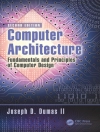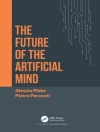We live in a moment of high anxiety around digital transformation. Computers are blamed for generating toxic forms of culture and ways of life. Once part of future imaginaries that were optimistic or even utopian, today there is a sense that things have turned out very differently. Anti-computing is widespread. This book seeks to understand its cultural and material logics, its forms, and its operations.
Anti-Computing critically investigates forgotten histories of dissent – moments when the imposition of computational technologies, logics, techniques, imaginaries, utopias have been questioned, disputed, or refused. It asks why dissent is forgotten and how – under what circumstances – it revives. Constituting an engagement with media archaeology/medium theory and working through a series of case studies, this book is compelling reading for scholars in digital media, literary, cultural history, digital humanities and associated fields at all levels.
Spis treści
1 Anti computing: A provisional taxonomy
2 Discontinuous continuity: How anti-computing time travels
3 A most political performance: Treachery, the archive and the database
4 Arendt, automation, and the cybercultural revolution
5 Polemical acts of rare extremism: Two cultures and (Another) Hat
6 Apostacy in the temple of technology: ELIZA the more than mechanical therapist
7 Those in love with quantum filth: Science Fiction, singularity and the flesh
Conclusion: A distant reading of the contemporary moment
Index
O autorze
Caroline Bassett is Senior Lecturer in Digital Media in the Department of Media and Film at the University of Sussex












